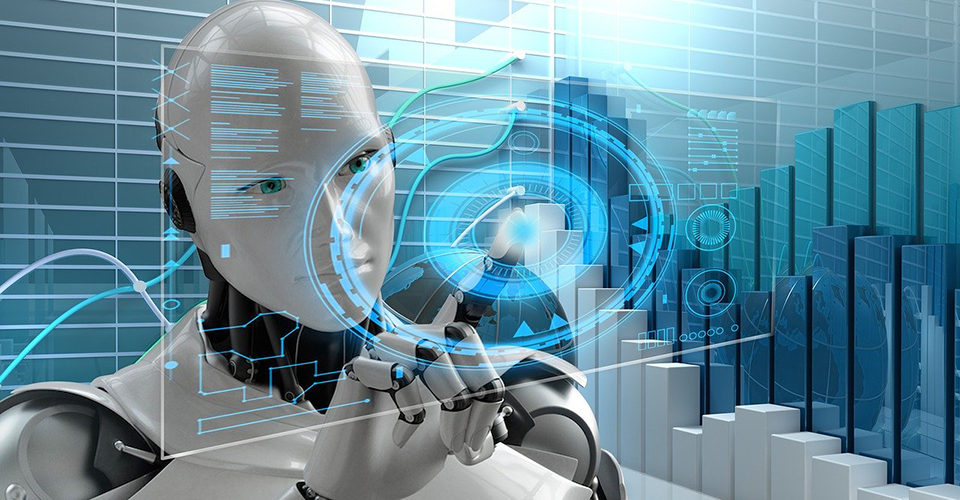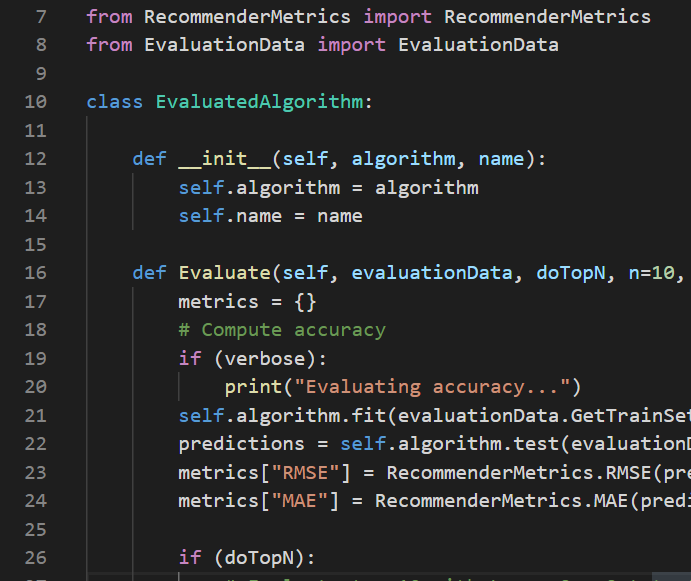
Faizan Asad & Mirja Andersson
The year 2020 has brought great sustainability challenges as the world is facing the pandemics of COVID-19, that has been causing great suffering in term of loss of lives and financial incomes. Artificial intelligence (later AI) is helping to present smart solutions for prevention and diagnosis of this new virus (Alimadadi et al. 2020). However, AI is not going to solve the problem itself, it would need creative and inventive approaches from humans (Hollister 2020). AI is still, after ca. 30 years of existing, an emerging field with great potential to help in globally shared challenges in ecological sustainability such as fighting the climate change, preserving biodiversity and healthy oceans, securing clean water and air, and in being resilient in conditions of extreme weather and disasters (World Economic Forum 2018). Integration of AI / machine learning into systems of plastic recycling, and by that helping the cause of ecological sustainability, could result in innovative and smart solutions too.
Arcada University of Applied Sciences participated during 2014–2016 in a national strategic research program, Material Value Chains (in Finnish Materiaalien Arvovirrat, later ARVI) financed by The Finnish Funding Agency for Technology and Innovation (currently known as Business Finland, previously TEKES) together with nearly 30 organisations including universities, research institutes and companies. The objective of the ARVI research program was to build a mutual understanding of future business opportunities related to recycling of materials, as well as required know-how and abilities for their utilisation. This interdisciplinary research program offered a unique opportunity for Finnish industry and research institutes to carry out long-term strategic research cooperation and launch the circular economy nationally in the field of plastic recycling and waste management (Clic Innovation 2017).
Recycling of plastic waste, even in Finland with well-developed waste management system, would still require more resources (YLE News 2020). To continue our previous applied research work with plastic recycling (Mylläri et al. 2016; Clic Innovation 2017; Andersson et al. 2018; Jönkkäri et al. 2020) as well as our development work with ecological sustainability themes in engineering education (Andersson and Makkonen-Craig 2017), we are launching a new research aim to explore the improvement of sorting processes through suitable applications of AI and machine learning together with collaborating universities and companies. In this article we will briefly introduce this aim by reviewing the current knowledge and status around the topic.
Towards the era of AI by applied research in combination with materials technology
Optimised and smart new technologies, such as a robotic arm equipped with AI for automatic sorting and a machine learning image classifier model for reliable item detection, could assist to keep the plastic materials longer in circulation for improved ecological sustainability. We have applied research financing recently for our research aim on new machine learning applications for plastic recycling from Arcada Foundation. In general, the research topic of plastic recycling at Arcada is also supported by recently granted 2-year financing by Business Finland for co-innovation with private sector. The “All in for Plastics Recycling’’ (later PLASTIn) project is established to support the plastic industry actors to develop systemic, and environmentally optimized recycling concepts. This is achieved with the new knowledge gained about recycling processes and technologies such as sorting, pre-treatment, mechanical and chemical treatment and reject handling, and about system level understanding, allowing improved business opportunities based on recycling.
The project aims to focus on the recycling of challenging plastics, and turn the challenges into new business opportunities of the plastic cluster in Finland and promote the circular economy. The research organisations participating in the PLASTIn project consortium are Finnish Environment Institute, Lappeenranta Lahti University of Technology, Tampere University, VTT Technical Research Centre of Finland and Arcada University of Applied Sciences together with several industrial partners. The research consortium in PLASTIn project will offer a readily available platform to discuss the pros and cons of proposed machine learning applications to benefit plastic recycling.
Challenges with plastic waste and potential improvement by AI
Earlier studies on plastic recycling accomplished for example at ARVI research programme, have confirmed many practical challenges (Clic Innovation 2017). As systems are partially developing, new challenges may arise with the development. According to a recent article by YLE, Finland has ended up with a, in a way, positive problem with increased plastic sorting by the households (YLE News 2020). This problem reflects the willingness of households to sort their waste, which is good, but as a consequence the capacity of mechanical plastic recycling appears to be the limiting factor in the system. The leading professionals and companies in the field have worked to develop the material circulation of plastics for years, but still systemic change caused by the sorting habits of the households in Finland was unexpected.
How is AI currently helping in waste sorting? The use of machine learning in waste sorting through a robotic arm is not an unrealistic or new concept. There are companies around the world that are using this type of AI application already. However, optimally working and affordable solutions for all possible sorting lines do not exist. In Sweden, a company Lundstams Återvinning AB is using a heavy robotic arm to sort construction and demolition waste (Lundstams 2020). In Switzerland, another company SORTERA sort mixed construction and industrial waste. Both companies use the same technology developed by ZenRobotics Ltd., an AI solution company having roots in Finland (ZenRobotics 2019). However, there is high potential of AI research and optimization also in waste sorting applications, remembering that also AI technologies develop in selection, and solutions are getting smaller, faster and more mobile.

The core idea in our research is to use vision detection for sorting plastic waste. This can be achieved by using image identifier ML models e.g. neural network for identification of objects in real time. Another example is RetinaNet model, that has been used for pedestrian detection from the aerial images. OpenCV – another ML model could also be trained for this particular application. The ML model will be trained on open source data and will be tested and optimized. In the second stage of the project, the model will be trained on real life data and adjusted for final application. The final result will be a robotic arm equipped with sophisticated AI to sort plastic waste, of later defined type, since the types of waste and plastics are numerous. However, working applications will need cooperation on a systemic level, with other researchers and companies, and will need the enthusiastic engineering students with their thesis projects to contribute.
Summary
AI is an emerging field that offers creative and innovative applications by assisting in finding solutions in several fields of life. It has brought out of the box remedies to industrial problems, and has tackled daily life issues with ease. AI has been employed already for numerous ecological solutions. However, more resources, more hands and clever heads would be needed to develop AI for ecological sustainability. The year 2020 has brought great sustainability challenges with the world facing the COVID-19 pandemic. AI is providing creative solutions, for both current challenges and on a longer perspective, for example by help in analysing medical data and also assisting in finding solutions for improvement (Rao et al. 2020). It may very well be that AI will become more important in the world after the pandemic than before it. Open data and thorough research are in demand for the sustainable use of AI, and the sustainable decision making based on proven facts and figures, for ecological reasons, too. The world is certainly moving towards AI applications. It is high time the universities of applied sciences take more systematic steps towards the new technological era. This work has only just begun.
Acknowledgements
Arcada University of Applied Sciences wishes to acknowledge the association Svenska Folkskolans Vänner rf. (SFV), as financer of current development project TEKNETIUM that has enabled writing this article.
Authors
Faizan Asad, M.Sc. (Tech.), Project Researcher, Arcada University of Applied Sciences/Department of Energy and Materials Technology, faizan.asad(at)arcada.fi
Mirja Andersson, D.Sc., Head of Department, Arcada University of Applied Sciences/Department of Energy and Materials Technology, mirja.andersson(at)arcada.fi
References
Alimadadi, A., Aryal, S., Manandhar, I., Munroe, P.B., Joe, B., & Cheng, X. (2020). Artificial intelligence and machine learning to fight COVID-19. Physiological Genomics, 52(4), 200–202. https://doi.org/10.1152/physiolgenomics.00029.2020.
Andersson, M., & Makkonen-Craig, S. (2017). Sustainable values in future engineering education. In N. Hyde-Clarke & C. Wikström-Grotell (Eds.), A Culture of Sustainability and Innovation in Professional Higher Education. Arcada Publication 1, 2017. Online. http://urn.fi/URN:ISBN:978-952-5260-84-7. Accessed 7.4.2020.
Andersson, M., Makkonen-Craig, S., Holm, M., & Lehtonen, K. (2018). Muoviosaamista tarvitaan kiertotaloudessa. UAS Journal 1/2018. https://uasjournal.fi/1-2018/muoviosaamista-kiertotaloudessa/. Accessed 7.4.2020.
Clic Innovation. (2017). Material Value Chains. Final report. Online. Available at: http://arvifinalreport.fi/ Accessed 7.4.2020
Hollister, M. (2020). AI can help with the COVID-19 crisis. Article. World Economic Forum. Online. https://www.weforum.org/agenda/2020/03/covid-19-crisis-artificial-intelligence-creativity/. Accessed 7.4.2020
Jönkkäri, I., Poliakova, V., Mylläri, V., Anderson, R., Andersson, M., & Vuorinen, J. (2020). Compounding and characterization of recycled multilayer plastic films. Journal of Applied Polymer Sciences. Online. https://doi.org/10.1002/app.49101. Accessed 7.4.2020.
Lundstams Återvinning. (2020). News. Online. https://www.lundstams.se/robotisering. Accessed 7.4.2020.
Mylläri, V., Hartikainen, S., Poliakova, V., Anderson, R., Jönkkäri, I., Pasanen, P., Andersson, M. & Vuorinen, J. (2016). Detergent impurity effect on recycled HDPE: Properties after repetitive processing, Journal of Applied Polymer Science, 133(31), 43766. https://doi.org/10.1002/app.43766
Rao, A., & Vazquez, J. (2020). Identification of COVID-19 Can be Quicker through Artificial Intelligence framework using a Mobile Phone-Based Survey in the Populations when Cities/Towns Are Under Quarantine. Infection Control & Hospital Epidemiology, 1-18. https://doi.org/10.1017/ice.2020.61
World Economic Forum. (2018). Harnessing Artificial Intelligence for the Earth. Report. Online. http://www3.weforum.org/docs/Harnessing_Artificial_Intelligence_for_the_Earth_report_2018.pdf. Accessed 7.4.2020.
YLE News. (2020). Struggling to keep up, Finland exports plastic waste. News. Online. https://yle.fi/uutiset/osasto/news/struggling_to_keep_up_finland_exports_plastic_waste/11224544. Accessed 7.4.2020.
ZenRobotics. (2019). Robots Ready and Set at SORTERA. News. Online. https://zenrobotics.com/news/robots-ready-and-set-at-sortera/. Accessed 7.4.2020.



